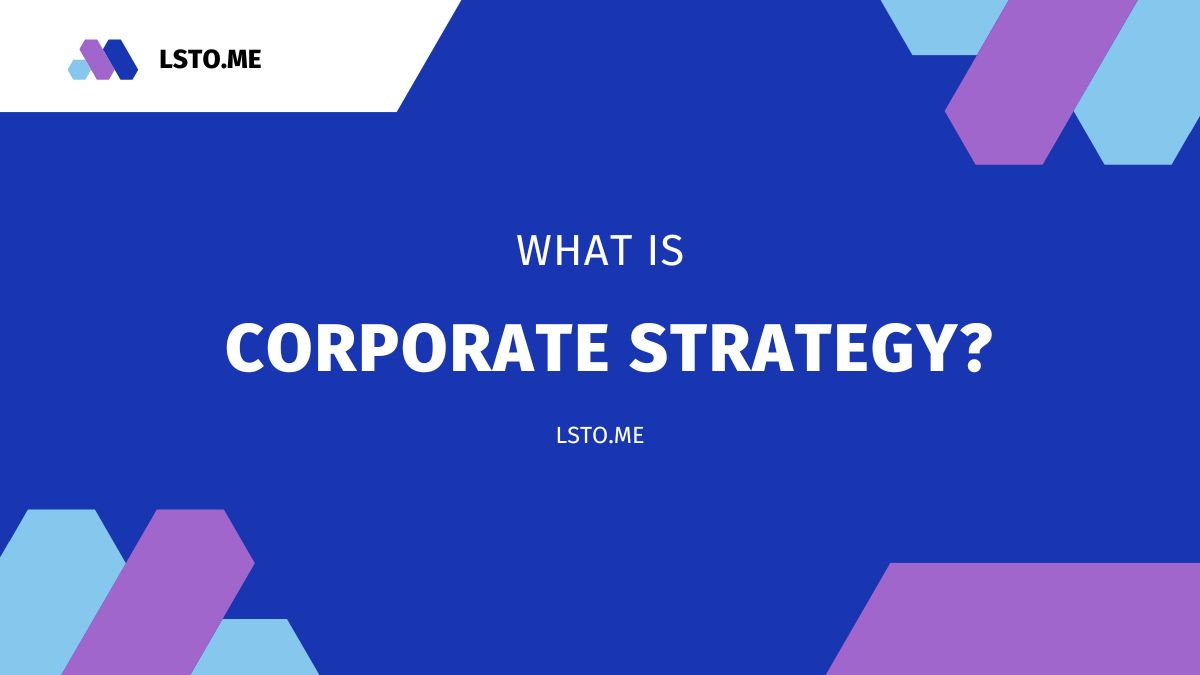
In the complex and competitive business landscape, corporate strategy plays a pivotal role in guiding organizations toward their goals and achieving sustainable success. A well-defined corporate strategy provides a roadmap for making critical decisions, allocating resources, and creating a competitive advantage. In this blog post, we will delve into the concept of corporate strategy, its importance, and how it shapes the direction and growth of an organization.
Defining Corporate Strategy:
Defining corporate strategy is an integral part of any successful organization. It’s a comprehensive plan that outlines the company’s overall goals, objectives, and ways to achieve them. This strategic planning process encompasses every aspect of a business, including its purpose, mission statement, values, and culture. Corporate strategy sets the direction for the company by defining how it will create value for its stakeholders while maximizing profitability.
A well-defined corporate strategy starts with understanding the market environment and analyzing internal capabilities to develop a competitive advantage. This involves assessing strengths and weaknesses in terms of resources, processes, technology, customer base, talent pool, and potential opportunities or threats present in the industry. The next step is to define long-term goals and objectives that align with the company’s vision. These goals should be specific, measurable, achievable realistic, and time-bound (SMART).
The Importance of Corporate Strategy:
1. Guiding Decision-Making:
Corporate strategy provides a framework for decision-making at all levels of the organization. It establishes the overall direction and priorities, ensuring that decisions align with the organization’s long-term goals and objectives. By providing a clear vision, the corporate strategy helps streamline decision-making processes and avoids ad hoc or conflicting decisions that can hinder progress.
2. Allocating Resources:
An effective corporate strategy helps allocate resources strategically. It identifies areas of growth, investment, and divestment based on market analysis, competitive positioning, and organizational capabilities. By aligning resource allocation with strategic priorities, organizations can optimize the use of their limited resources and enhance their competitive advantage.
3. Creating Competitive Advantage:
Corporate strategy plays a crucial role in creating and sustaining a competitive advantage. It involves analyzing the industry landscape, understanding customer needs, and identifying unique value propositions that differentiate the organization from competitors. Corporate strategy guides the development of capabilities, innovation, and market positioning that allow the organization to outperform rivals and capture market share.
4. Enabling Adaptability:
In a rapidly changing business environment, corporate strategy enables organizations to adapt and respond effectively to external disruptions. By continuously scanning the market, monitoring trends, and evaluating the competitive landscape, organizations can adjust their corporate strategy to seize new opportunities, mitigate risks, and navigate industry shifts. A well-designed corporate strategy promotes organizational agility and resilience.
5. Enhancing Stakeholder Alignment:
The corporate strategy helps align the interests and expectations of various stakeholders, including shareholders, employees, customers, and partners. By communicating a clear corporate strategy, organizations foster a shared understanding of the vision, values, and objectives. This alignment enhances stakeholder engagement, motivates employees, and builds trust among external stakeholders.
Conclusion:
Corporate strategy serves as a compass for organizations, guiding their decisions, resource allocation, and competitive positioning. By defining the direction, purpose, and scope of the organization, corporate strategy empowers businesses to adapt, create a competitive advantage, and achieve long-term success. A robust corporate strategy aligns stakeholders, guides decision-making, optimizes resource allocation, and enables organizations to navigate through dynamic business landscapes. Embracing and executing a well-defined corporate strategy is key to unlocking organizational growth and sustaining a competitive edge in today’s ever-evolving business world.